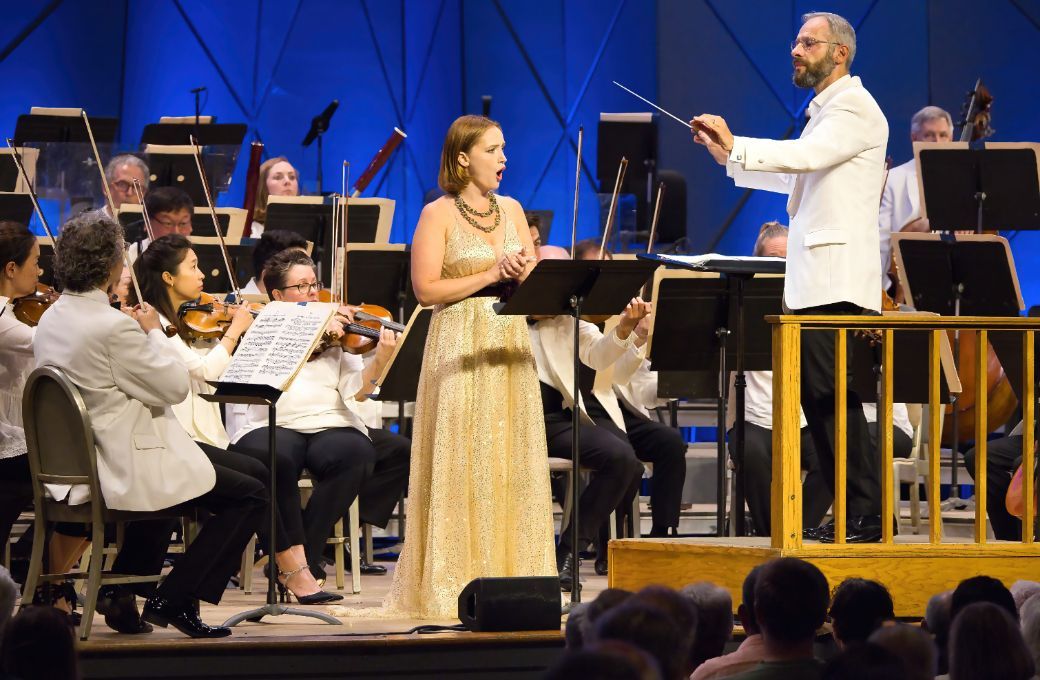Dima Slobodeniouk’s Saturday evening program at Tanglewood stood as an intriguing survey of sacred and profane love and French music from Berlioz to Ravel to Messiaen, opening with the latter’s first performed work, the 1931 Les Offrandes oubliées. Here, Messiaen has yet to fully develop his distinctive way with the orchestra. Thematically, however, he is already turning to aspects of his Catholic faith for subject matter. Slobodeniouk painted the three panels of this triptych in vivid colors.

Isabel Leonard had to withdraw as soloist in Les Nuits d’été due to illness. Contralto Avery Amereau stepped in, making her Boston Symphony Orchestra debut and a convincing case for the contralto as the most suitable voice type for these songs. Her voice has a smooth, creamy quality throughout its range. She caressed the lines, spinning them out so effortlessly that she didn’t seem to breathe. As the tone of the four central songs darkened, her voice took on more sepulchral qualities, adding pathos to the lament of Sur les lagunes, the yearning of Absence, and the haunted resignation of Au cimetière. L’Île inconnue brightened, but read as an outburst of defiant wishful thinking in the face of all that had gone before. All in all, this was a vocal and dramatic tour de force, ably abetted by Slobodeniouk and the orchestra.
Though Agata Zubel’s In the Shade of an Unshed Tear might seem out of place amongst all this Frenchness, in some aspects of her style here and elsewhere she is following in the footsteps of Ravel and Messiaen. A percussionist (as well as vocalist) herself, Zubel begins with a loud aggressive rhythmic figure from the timpani, which recurs throughout the increasingly tumultuous fray. The violins initially create a silvery sheen of microtones, other instruments interrupt or interject in fragmentary fashion. Different sections begin to accelerate and at times the bits and pieces seem on the brink of coalescing into something else until a gradual slowdown ends in fading drumbeats over an evaporating glissando.
In a brief Q & A with Slobodeniouk, Zubel emphasized the abstract nature of the composition by stating that there would be as many pieces as people listening. Each audience member is complicit in the creation of the composition as something meaningful to them. Zubel and Slobodeniouk provided a wealth of thought-provoking material to work with.
Suite No. 2 from Daphnis et Chloé returned to the subject of profane love with a torrid, orgiastic reading from Slobodeniouk. Even the break of dawn and the pastoral interludes sounded erotic. Though there was no chorus to augment the orchestra’s sighs and cries, the tension became nearly intolerable making the concluding catharsis all the more welcome.
Torrential downpours in the early evening washed out the lawn audience and The Shed was barely half full, but what the audience lacked in numbers it made up for with its enthusiastic response to a top notch evening of music.


